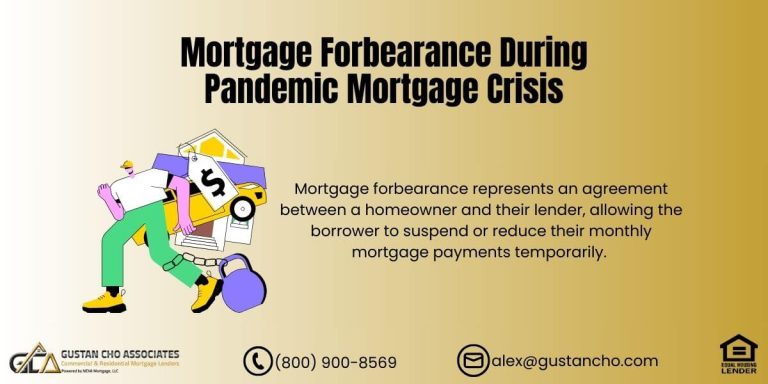This Article On Mortgage Blogs Online And The Validity Of Accurate Content
Mortgage Blogs are mortgage articles written about real estate, mortgage, and lending-related topics by writers and published on the internet.
- Most consumers who are in need of answers to questions on mortgages or real estate normally will search online and type in keywords or phrases for answers
- Google then lists pages of results of the keywords or questions input by consumers
- Many results will be blogs written by writers on specific topics and/or experts in the area that wrote articles on the subject topic
- The mortgage industry is so complex
- Just going over the mortgage lending guidelines by the Federal Housing Administration, Department of Veteran Affairs, Fannie Mae, and Freddie Mac can be extremely confusing and time-consuming that most consumers do not find it informational
- Mortgage Blogs are not just for consumers
- Many real estate professionals, attorneys, real estate agents, home inspectors, title company officers, insurance agents, and even mortgage brokers and mortgage underwriters read mortgage blogs
- Mortgage Blogs can be extremely helpful for those seeking information about questions they may have on all areas of mortgage lending and real estate
In this article, we will discuss and cover Mortgage Blogs Online And The Validity Of Accurate Content.
Who Are The Writers Of Mortgage Blogs And Are The Information On Blogs Accurate?
Anyone can write a mortgage blog.
- A blog is an article written by a writer about a particular topic and published on a website, newspaper, or newsletter for the public to view
- There are thousands of bloggers and tens of thousands of mortgage-related blogs on the world wide web
- Anyone can write a blog
- You do not need any certification or special credentials to be a blogger
- A blogger does not even need any experience or knowledge on the topic he or she is writing about
- A blogger can just write about their opinion of the subject matter or their experience
- Many times consumers who search on the internet about a particular topic may get conflicting answers by various bloggers
- Many viewers often get confused and question who is right and who is wrong
- This often happens
- This is because blogs on the internet are not reviewed and/or monitored for accuracy, validity, or inaccuracy
It is up to the viewer of the blog to determine the content and due to further research to check the validity of the content of the blog.
Content Writers With No Mortgage Lending Experience
Many mortgage blogs are written by writers who are not in the mortgage business and often contain errors on content.
- For example, a national publication like the Wall Street Journal may have a staff reporter and writer that wrote about Fannie Mae Guidelines On Qualifying For Mortgage After Bankruptcy
- The Wall Street Journal writer has never ever originated a loan in his life before
- Or not even know anything about mortgage lending guidelines
However, the writer can write and publish a 1,000-word mortgage blog on a complex topic like Qualifying For Mortgage After Bankruptcy and the Fannie Mae Guidelines.
Researching The Expertise Of The Writer Of The Content Written
The author may have great intentions in his writings.
- However, he is not a professional mortgage expert but he is a professional writer
- When viewing mortgage blogs, the viewer should always check and research on who the mortgage blog writer is
- Nothing is wrong with reading blogs about mortgages that were written by a writer from The Chicago Tribune
- But a mortgage blog written by a practicing mortgage loan professional may carry more weight and credibility than a mortgage blog written by a newspaper writer with no mortgage origination experience
- Same with other topics
A blog written about the pros and cons of filing Chapter 7 Bankruptcy by a Bankruptcy Attorney will carry more weight than a writer who has no experience or industry experience in Bankruptcy Laws.
Mortgage Blogs Are Great Informational Source
Mortgage Blogs are great information sources for consumers and real estate industry professionals.
- For example, I have hundreds of subscribers to my Mortgage Blog at Gustan Cho Associates
- Many of our viewers and fans at Gustan Cho Associates are real estate industry professionals such as real estate attorneys, real estate agents, accountants, money managers, real estate investors, and consumers besides just home buyers or homeowners needing a refinance mortgage loan
- On the flip side, I also subscribe to other mortgage and real estate blogs so I can keep in touch with the latest real estate and mortgage information
I have a list of my favorite real estate and mortgage bloggers and keep a lot of their blog articles saved on my archives to use them as a resource tool.
Mortgage Blogs To Stay Away From
Unfortunately, many mortgage websites have mortgage blog articles published for the sole purpose of lead generation and not as an informational tool for consumers. Be careful when you run into a new mortgage blog website and if the website is a newer website and promoting their product is their number one mission, then the chances are that this website is not intended to be an informational center. For example, if the mortgage blog repeats itself with statements like ” Lowest Mortgage Rates In Town” or “Call Today And Apply And Get Free Credit Report” or ” For A Limited Time There Is No Appraisal Fee” or some other solicitations, then the chances are that the mortgage blog website’s mission is to solicit borrowers and not offer valuable information to consumers.
Mortgage Blogs By Gustan Cho Explained:
- Mortgage Blogs are great informational sources for home buyers looking to see whether they qualify for a home loan
- Borrowers who think they will have a hard time qualifying for a home loan often can get their questions answered at Gustan Cho Associates
- The mortgage business is so complex
- So many mortgage guidelines and new rules that are always coming up
- It is not just difficult to keep up for borrowers but also for mortgage professionals
- Just because you are a licensed mortgage loan originator does not mean that you know everything
- As a manager of a mortgage banking institution, I have many licensed mortgage loan originators who are under my direct supervision and management
- I often get asked many case scenarios by our loan officers
- It is almost impossible to know every case scenario
- Many times I have to look up the lending guidelines of the particular mortgage loan programs
In this article, we will discuss Mortgage Blogs By Gustan Cho Associates Mortgage Group and how we help borrowers and real estate professionals with the latest mortgage news.
Agency Mortgage Guidelines Versus Lender Overlays
FHA, VA, USDA, Fannie Mae, and Freddie Mac all have their own mortgage lending guidelines and they are all different.
- Many times when the mortgage guidelines are vague, we often contact our underwriting department and speak with either an underwriting manager and/or the underwriting director for clarification
- There are many instances that the underwriting management team will not have an answer to the particular case scenario we have in question
- Often times they will contact HUD (For FHA Loan Case Scenarios) or Fannie Mae (For Conventional Loan Case Scenarios)
We have tens of thousands of viewers of my daily mortgage blogs we publish. We want to explain the way we come up with our ideas and topics for our mortgage blogs and how we write them and the accuracy of them.
Mortgage-Related Topics
The way I get the topics to write about is by my viewers.
- Any loan officer can originate and fund any borrower that has an 800 plus credit score, 40% debt to income ratios, solid employment history, and perfect credit payment history
- Unfortunately, that is not how our world is and many hard-working Americans have gone through periods of hard financial times, especially after the Great Recession of 2008
- Never in United States history have so many people file for Bankruptcy or went through foreclosure in the history of the United States than during the 2008 Real Estate and Mortgage Meltdown
- Millions of hard-working Americans lost their businesses, lost the jobs that they had for decades, lost all of the hard-earned equity they had earned in their homes
- Many who went into retirement had been forced to get out of retirement and rejoin the workforce
People who counted on their retirement accounts or the equity in their homes saw all of their hard-earned retirement funds and equity of their hopes evaporate before their eyes.
Stable Employment And Income
Millions of folks who were unemployed never recovered and gave up even to this day looking for work.
- Many workers had to settle for multiple part-time jobs
- They no longer had benefits
- They took on menial jobs just to make ends meet
- Others had to settle for jobs that they were overqualified for
- Many gave up on hopes in having a career
- Instead, they were more concerned about putting food on the table for their families
- The real estate, mortgage lending, and construction lending fields came to an abrupt halt after the 2008 Real Estate and Credit Meltdown
- The whole mortgage lending industry went through a 180-degree overhaul
- Complete sectors of the mortgage industry got completely eliminated
The sub-prime mortgage lending sectors eliminated millions of jobs. Mortgage giants like Countrywide Home Loans and Washington Mutual went out of business overnight.
Mortgage Blogs By Gustan Cho On Case Scenarios
Mortgage Blogs By Gustan Cho: Most of the blog topics that I write about are from the actual mortgage case scenarios that our team at Gustan Cho Associates do.
- I specialize in originating and funding mortgage loans with no lender overlays
- Our team at Gustan Cho Associates can do FHA, VA, USDA, Non-QM, Conventional Loans, FHA 203k Loans, FHA Reverse Mortgages, Jumbo Mortgages, Non-Conforming Loans, Condotel and Non-Warrantable Financing, Commercial Loans, Hard Money Loans, and Specialty Financing
- So there can be thousands of case scenarios
- Mortgage Blogs are mortgage-related articles that are written by authors and published on websites
- I have been a blogger for many years
- We have written thousands of blogs and really enjoy writing and publishing blogs
- I have read many mortgage blogs by many other mortgage and real estate bloggers
- I have run into blogs that contain misleading information
- Some blogs are totally so far from the truth that viewers need to really not take each blog they read as 100% accurate information
- Find out who wrote the blog
- Believe it or not, there are many mortgage bloggers who write daily mortgage blogs but have no experience whatsoever in the mortgage industry
- They have never ever originated or closed a home loan before
I am not saying that whatever they are writing is incorrect but a blogger needs to get their facts straight before publishing it live on the world wide web.
Mortgage Blogs By Gustan Cho And How To Check For Age Of Blog Date
Mortgage Blogs By Gustan Cho: Check the date of the content and when it was published.
- Mortgage regulations change all of the time and can change instantly
- If you are reading mortgage blogs by Gustan Cho Associates, please check the date of when the mortgage blog was published
- Older blogs may not be accurate and the mortgage lending guidelines may have changed over the years
- For example, Fannie Mae Guidelines to qualify for a conventional loan after a short sale or deed in lieu of foreclosure used to be two years after the short sale or deed in lieu of foreclosure as long as the home buyer used to have a 20% down payment
- I have written several mortgage blogs about this but this Fannie Mae guideline is no longer in effect
It is now four years to qualify for conventional loans after a deed in lieu of foreclosure and/or a short-sale.
Mortgage Agency Guidelines
The new Fannie Mae Guidelines to qualify for a conventional loan after a short sale or deed in lieu of foreclosure is not four years after the date of the short sale or the recorded date of a deed in lieu of foreclosure with 5% down payment for a home buyer
- If you read mortgage blogs by Gustan Cho Associates and the article is aged, please contact us anytime at 800-900-8569 or text us for a faster response
- Or email us at gcho@gustancho.com
We are available 7 days a week, evenings, weekends, and holidays to take your phone calls and answer any of your questions.
Content Accuracy From The Mortgage Blogs By Gustan Cho Associates
As mentioned earlier, not all mortgage blogs contain accurate information.
- There is one popular mortgage website where I read an article on by the author that states that FHA Loans all have the same mortgage interest rates
- They claimed that all lenders give the same rates on FHA Loans because FHA Loans are insured by the Federal Housing Administration or FHA
- However, this is not true. Even though all FHA Loans are insured by FHA
- Mortgage lenders do have pricing adjustments for Borrowers with lower credit scores
- For example, if your credit scores are 680 credit scores or higher, your mortgage interest rate may be 4.0%
- However, if your credit scores are below 600 FICO, chances are the mortgage interest may be 4.75%
- These FHA mortgage interest rates are just used for illustration purposes and do not reflect current FHA mortgage interest rates
So the blogger who is writing this blog is quoting the wrong information on his website. Viewers need to make sure of the accuracy of the mortgage blogs that they are reading and always check second opinions.









Hello, My husband and I are looking to buy a home in NC. We currently live in PA. We are thinking that we will not be able to buy a home because of our DTI ratio. We have a lot of student loan debt and are in our mid 50’s. After looking at your website, I thought that I would reach out to you and see if there is anything you can do to help us. Thank you in advance. Kind regards, Laura Hamilton
Checklist for Gustan Cho Associates Posts
Posts for Gustan Cho Associates should follow these best practices to make them useful for readers and profitable for us. This checklist covers what to do before writing your post, how to write your post so each one looks the same and promotes our brand, and how to follow up with the post to make it monetize.
Before Writing a Post
Decide what the purpose of your post is.
Here are some common ones
To inform consumers about a new product or rule change (news post)
To answer common questions from consumers about mortgages
To rank for a keyword that we have not pursued before
To express an opinion
To add evergreen guides for mortgage products or processes
Do an incognito advanced Google search for that keyword or topic on Gustan Cho Associates to see if we already have an article about it. This link is for the term & QUOTE mortgage; Replace that with your topic or
keyword. If we already have an article covering that topic, bring up the top-ranking piece and see if it's worthy of an update. If it is, proceed to update the piece. The rules are the same for updates or new articles, so you' ll follow the same process. If the top-ranking piece doesn’t cover the topic well, try the next-highest article, and ONLY if there are no good articles covering the topic, write a new one.
Set Up the Post
Professional editors create assignments for writers to get them focused on the topics and help them organize their articles properly. You should create your own assignments the same way so that your
posts will be organized and easy to read.
To set up a post, decide what your topic and keyword will be
Then create an outline so that you stay on-topic and don’t head into the weeds. It is very easy for writers to get sidetracked and start adding other topics to a piece. For instance, they might start writing about how a 30-year fixed mortgage works and then start a discussion about overlays or the history of FHA or whatever. An outline prevents you from doing this.
Here is a sample outline for a post about finding a good lender.
Topic: How to Find the Best Mortgage Lenders
Keyword: best mortgage lenders
H1: How to Find the Best Mortgage Lenders
Subtitle: Compare Mortgage Quotes and Ask These Questions to Find the Best Mortgage Lender for You
Introduction (try to do an intro like this example with three bullet points to get into Google snippets):
The best mortgage lenders provide excellent service and competitive mortgage rates. To find the best lender for you:
Contact several lenders and request a mortgage quote in writing
Compare quotes and then interview the top two lenders
Choose an experienced lender who communicates well
Contacting multiple lenders online makes it easier to compare and choose quickly.
H2: Request Mortgage Quotes from Multiple Lenders
(explain how to request quotes online and explain that you can only compare quotes that come in on the same day)
H2: Compare Mortgage Quotes
(explain what a Loan Estimate disclosure is and that some lenders provide loan scenarios instead of LEs)
H2: Interviewing Lenders: Questions to Ask
(include a list of questions consumers should ask lenders when they interview them and explain why the question is important and what you earn from it)
H2: Good Lenders vs Bad Lenders
(explain what good lenders do and how bad lenders don’t get the job done. For example, good lenders reply promptly when you call, text or email with questions. And they communicate in the style that you prefer. While bad lenders are never available, especially if they have bad news to deliver.)
Conclusion —
Choosing the right lender is important because a bad one can cost you money and provide a stressful experience. While a good lender offers a competitive interest rate and processes your loan with minimal hitches or ugly surprises. (Add two sentences about Gustan Cho Associates and why were the best lender for many first-time buyers, borrowers with credit issues, and borrowers who need non-QM loans.
Write the Post
Once you have decided on your topic and set up your post, you will want to follow some basic rules. I recommend using Grammarly because it will catch grammatical errors and it teaches you from
wrong in a fun way. Eventually, you will naturally write correctly without even thinking about it. One thing I have noticed is the random capitalization of words in the posts. So this is wrong. It is important to
apply for Mortgage Preapproval before you buy a home. No one should be publishing content that does not have green lights on the WordPress Readability
and SEO analyzer. You will see the grade in the top right under Publish. Click on the grade there and it opens up the analysis at the bottom.
Here is a sample readability analysis. It tells you exactly what you’re doing right and what needs to be improved.
In this example, the problems are too high a reading difficulty, too much passive voice, repetitive word use, and sentence length. If you click the little eye icon on the right, it will highlight the parts of the post that are causing readability problems. Passive voice is a very common problem.
Here is a passive sentence:
The illegal left turn was made by the bad driver.
The active version is:
The bad driver made an illegal left turn. No more than 10% of your sentence should be passive, and WordPress will flag that issue.
Here’s another one:
Once you are approved for a mortgage by the lender, you will get a preapproval letter that you can show home sellers when you make an offer.
And here is the correct, active version:
Once the lender approves your loan application, you will get a preapproval letter that you can show home sellers when you make an offer. If something is done to someone or by someone, the sentence is
probably passive. Here’s another passive sentence: Sentence length is also a common issue. The sentence above has 23 words. To get it under 20 (the
target), try breaking it up. Once the lender approves your loan application, you will receive a mortgage preapproval letter. You can show this letter to home sellers when you make an offer
SEO analysis is similar. In general, to get a passing SEO grade, you need the keyword in the title, at least one subhead, and at least once in the body. You want the keyword in the meta description as well.
DON’T STUFF KEYWORDS PLEASE
I have noticed a lot of posts in which the key phrase is way overused. The title might be Mortgage Approval With a High Debt-to-Income Ratio. And then every subhead is something like Compensating Factors About Mortgage Approval With a High Debt-to-Income Ratio.
Get a Cosigner for Mortgage Approval With a High Debt-to-Income Ratio," etc.
It is better to use the primary keyword in the title, one subhead, and at least once in the body. Use the
keyword only in a natural way. You can also use similar words when you write the post. For the example above, for instance, better subheads might be. Apply With a Co-Signer and Compensating Factors for Higher DTI.
In two to four weeks, writing content that gets green lights will become automatic. Stick with this list and you will ll find that you are writing to these guidelines without even thinking about them.
Formatting the Post
All posts should use the same formatting so that when users click through the site it looks professional
and is easy to read. Please use this checklist to make sure that you are following these rules until they
become second nature.
Headlines and H2 subheads should be in TITLE CASE. That means do not capitalize every word. You
capitalize:
The first and last word of the heading
Words of four or more letters
All verbs (even short ones)
Wrong: Is Rental Verification Necessary To Buy House By Lenders
Right: Is Rental Verification by Lenders Necessary to Buy a House?
There should be a LOT of white space. The maximum paragraph size is 150 words. I don’t count the words; instead, I limit paragraphs to three or at the most four sentences.
Wrong (the block of text is hard to read and contains too many different ideas):
Rental verification is proof the borrowers have a prior rental payment history for at least the past 12 months. Rental verification, also referred to as verification of rent (VOR), is only valid if the renter can
provide either 12 months’ canceled checks and/or bank statements. The payment needs to be timely in the past 12 months. Besides providing proof of payment, the landlord needs to sign a rental verification form provided by the lender. Depending on the lender, a phone call to the landlord can be required. Rental verification is normally required on all FHA and/or VA manual underwrites. Borrowers who are living rent-free with family members to save money for the down payment are exempt from verification
of rent at Gustan Cho Associates. Right (the block has been broken into two shorter sections, one about the VOR form and the other
about alternative rental verification): Many loan programs require rental verification when borrowers don’t own their homes. Rental
verification shows mortgage lenders if the borrower paid rent on time during the last 12 months. Lenders use a Verification of Rent (VOR) form, which the landlord completes and signs. The lender may
also call the landlord.
Lenders may request proof of on-time rental payment directly from the borrower instead of sending a
VOR to the landlord. In that case, the borrower would provide canceled rent checks or bank statements
showing rent payments. Borrowers who live rent-free should provide a letter from their landlord stating that they pay no rent. The first sentence should not duplicate the title.
It should paraphrase the title and it should not be capitalized. It’s just a sentence in bold. So for this article, Payment Shock On Home Purchase By First Time Home Buyers, the first sentence
should read; This article covers payment shock for mortgage applicants who are renters." It’s a nice way to include secondary keywords and it looks a lot less spammy.
Don’t Stress!
This seems like a lot, but the learning curve is not bad. Within two to four weeks, if you carefully follow these tips, you will be automatically creating better content and freeing up the editors to 10-X the content. Good, high-ranking evergreen pieces only improve your SEO over time, and It’s much better to write more slowly and correctly and keep readability high. Because when people land on a site and see a massive block of italicized text, they often bail. That increases the bounce rate and incurs Google hatred. We want Google love, so we have to be easy to read and keep people on the pages longer.